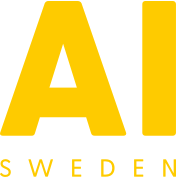Federated Learning Testbed
Federated learning is a new way of machine learning with the potential to allow the use of sensitive data while complying with legal requirements. AI Sweden, together with partners, is creating a virtual testbed to build up collective know-how of how to work with this technology in a production setting and investigating the legal and privacy requirements.

About the testbed
In this project, a testbed for experimenting, evaluating, and exploring, Federated Learning and related technologies will be established. Several pilots from different domains will build general knowledge from both a technical and legal perspective. The main focus will be on how Federated Learning can be an enabler for developing machine learning solutions on data that cannot be shared openly. A key aim of the testbed is to develop best practices and guidelines, as well as to provide opportunities to execute smaller tests or proof of concepts.
The project finished end of June 2021 and was started in August 2020.
The ongoing and final results are shared here.
Partners
Zenuity, Scaleout, RISE, Peltarion, MAQS, Qamcom, HPE, and Fraunhofer Chalmers Research Centre for Industrial Mathematics (FCC). Funding from Vinnova
Background
When and how to share data and information is a central question for all organizations working with data-driven methods. Federated machine learning has the promise to enable different organizations to share access to their data, without the other party seeing the actual data. This could finally allow European organizations to account for GDPR and build competitive and common algorithms on each other's data. Federated Learning is an emerging technology where a machine learning model is constructed in a decentralized way with data remaining locally under the data owners' control.
When we speak about machine learning, algorithms are most often trained on centralized data. This means that the algorithm owner has to gather all the data in one place, before training the model, and can at the same time freely view the real data values. Instead, a new technology called federated machine learning, fedML, works on the basis that one distributed algorithm trains locally, i.e. decentralized, where the sensitive data is stored privately. Each locally trained algorithm is then sent back with a small model update to the orchestrating user, and aggregated to one global model, without the user having ever seen the data.
This technology has the potential to put Sweden in the forefront when utilizing their data where companies can build something much greater from collaborating and also finally letting Swedens different regions utilize each health care data to start making progress never seen before.


